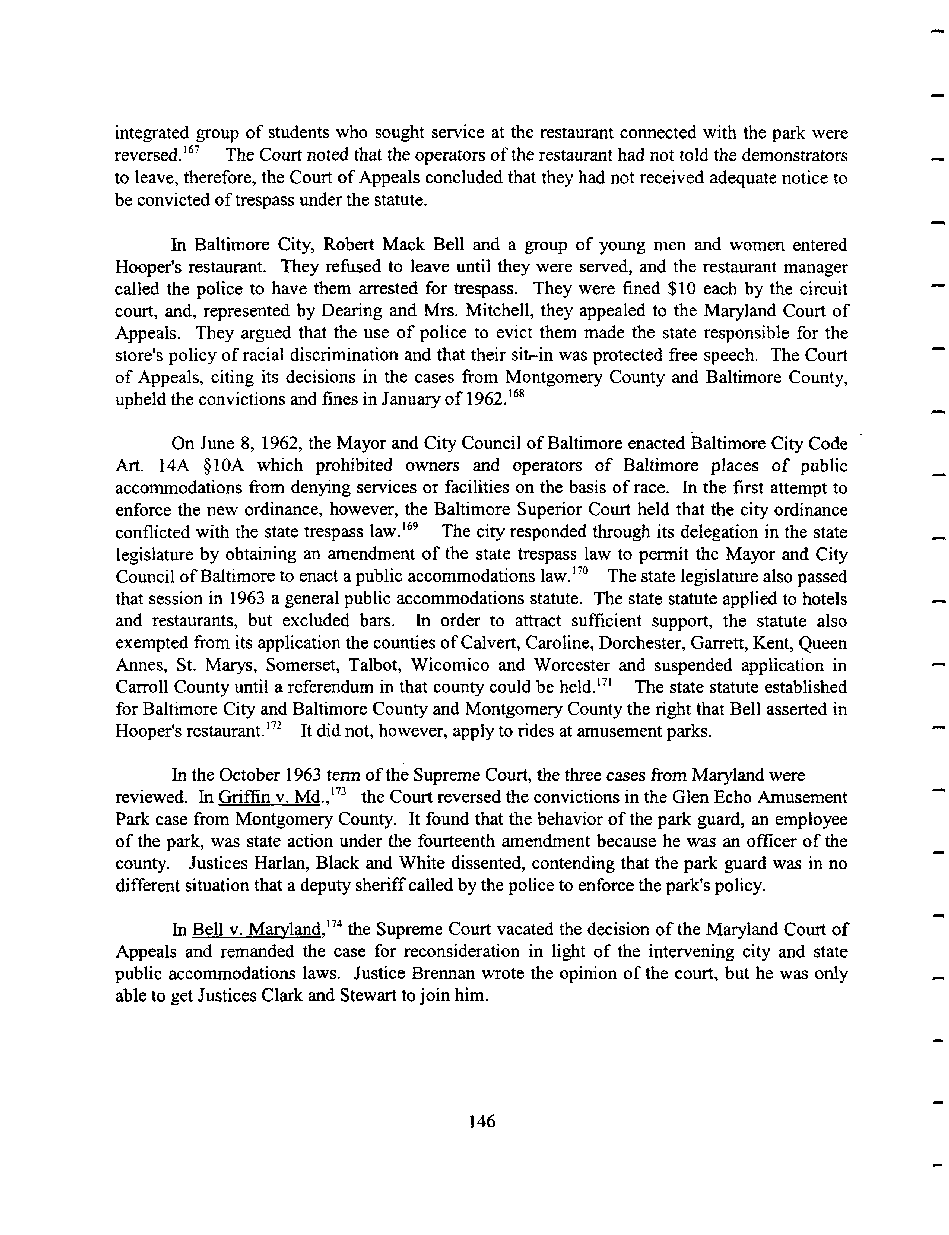|
integrated group of students who sought service at the restaurant connected with the park were
reversed.167 The Court noted that the operators of the restaurant had not told the demonstrators
to leave, therefore, the Court of Appeals concluded that they had not received adequate notice to
be convicted of trespass under the statute.
In Baltimore City, Robert Mack Bell and a group of young men and women entered
Hooper's restaurant. They refused to leave until they were served, and the restaurant manager
called the police to have them arrested for trespass. They were fined $10 each by the circuit
court, and, represented by Dealing and Mrs. Mitchell, they appealed to the Maryland Court of
Appeals. They argued that the use of police to evict them made the state responsible for the
store's policy of racial discrimination and that their sitr-in was protected free speech. The Court
of Appeals, citing its decisions in the cases from Montgomery County and Baltimore County,
upheld the convictions and fines in January of 1962.l68
On June 8, 1962, the Mayor and City Council of Baltimore enacted Baltimore City Code
Art. 14A §10A which prohibited owners and operators of Baltimore places of public
accommodations from denying services or facilities on the basis of race. In the first attempt to
enforce the new ordinance, however, the Baltimore Superior Court held that the city ordinance
conflicted with the state trespass law.169 The city responded through its delegation in the state
legislature by obtaining an amendment of the state trespass law to permit the Mayor and City
Council of Baltimore to enact a public accommodations law.170 The state legislature also passed
that session in 1963 a general public accommodations statute. The state statute applied to hotels
and restaurants, but excluded bars. In order to attract sufficient support, the statute also
exempted from its application the counties of Calvert, Caroline, Dorchester, Garrett, Kent, Queen
Annes, St. Marys, Somerset, Talbot, Wicomico and Worcester and suspended application in
Carroll County until a referendum in that county could be held,171 The state statute established
for Baltimore City and Baltimore County and Montgomery County the right that Bell asserted in
Hooper's restaurant.172 It did not, however, apply to rides at amusement parks.
In the October 1963 term of the Supreme Court, the three cases from Maryland were
reviewed. In Griffin v. Md.,173 the Court reversed the convictions in the Glen Echo Amusement
Park case from Montgomery County. It found that the behavior of the park guard, an employee
of the park, was state action under the fourteenth amendment because he was an officer of the
county. Justices Harlan, Black and White dissented, contending that the park guard was in no
different situation that a deputy sheriff called by the police to enforce the park's policy.
hi Bell v. Maryland.174 the Supreme Court vacated the decision of the Maryland Court of
Appeals and remanded the case for reconsideration in light of the intervening city and state
public accommodations laws. Justice Brennan wrote the opinion of the court, but he was only
able to get Justices Clark and Stewart to join him.
146
�
|

